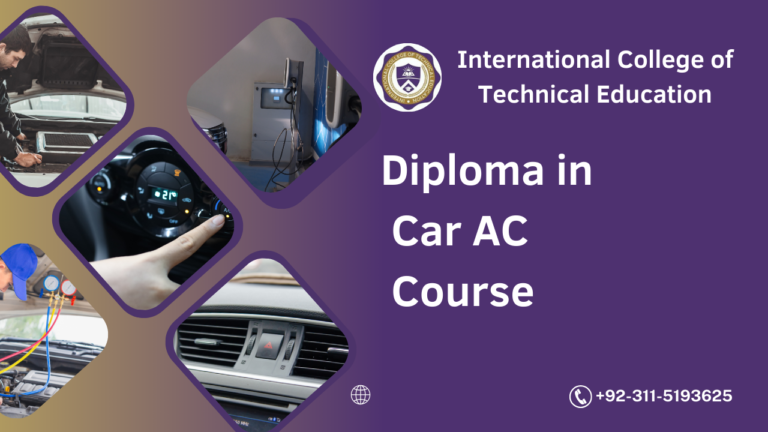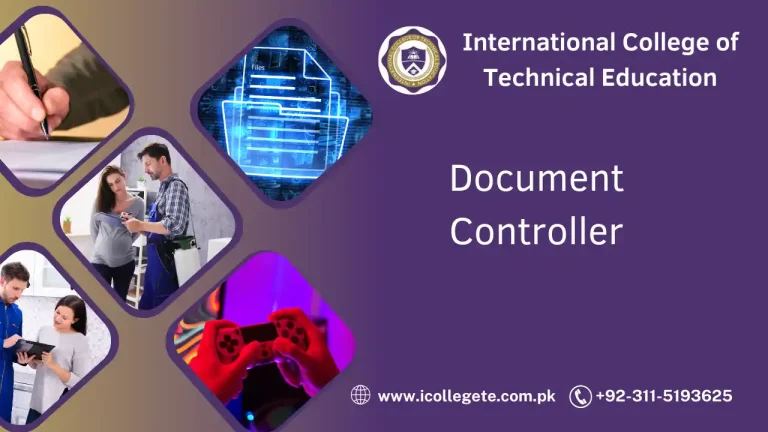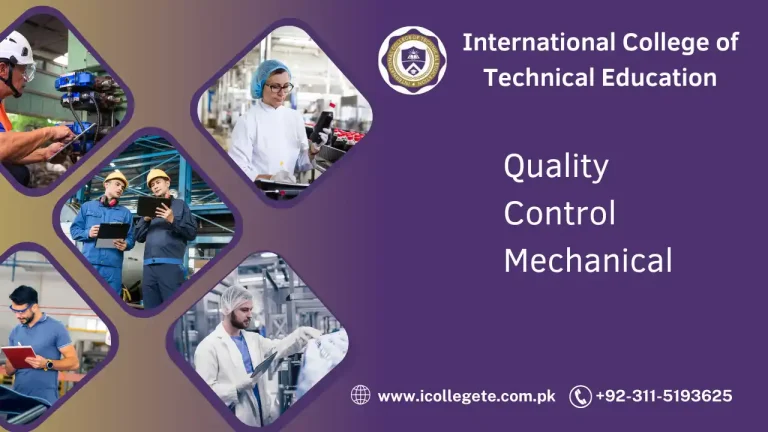In today’s highly competitive and dynamic business environment, organizations are increasingly focusing on ensuring high-quality products and services. The key to achieving and sustaining this quality lies in a well-structured approach to Total Quality Management (TQM). If you are interested in learning how to implement TQM effectively in your organization, then the Total Quality Management Course in Chakwal is the perfect opportunity for you.
The Total Quality Management (TQM) Course in Chakwal is designed to provide participants with a deep understanding of TQM principles, methodologies, and tools. It aims to equip individuals with the skills needed to drive quality initiatives within their organizations and contribute to the overall success and growth of the company.
TQM is an ongoing process that involves everyone in an organization, from top management to frontline workers, working together to improve the quality of products, services, and internal processes. This course will teach participants how to integrate quality management systems, foster a culture of continuous improvement, and effectively measure and monitor performance.
Course Overview
The Total Quality Management Course in Chakwal offers a comprehensive and in-depth study of TQM concepts, tools, and techniques. Throughout the course, students will explore various TQM methodologies, including process management, quality control, customer satisfaction, and employee involvement. They will also learn how to apply these methodologies to solve real-world problems and improve organizational performance.
The course covers a range of topics related to quality management, including the history and evolution of TQM, the role of leadership in quality improvement, and the importance of customer feedback and stakeholder involvement. Students will also have the opportunity to learn from case studies, industry best practices, and practical exercises that demonstrate the power of TQM in driving success across various sectors.
Study Units
The Total Quality Management Course in Chakwal consists of the following study units:
- Introduction to Total Quality Management (TQM)
- What is TQM and why is it important for businesses?
- The evolution of quality management and the rise of TQM
- Key principles of TQM: customer focus, continuous improvement, leadership commitment, etc.
- Overview of the TQM process and its components
- TQM Philosophies and Methodologies
- Key TQM philosophies: Deming’s 14 Points, Juran’s Quality Trilogy, Crosby’s Quality Concept, etc.
- Understanding Six Sigma, Lean Management, and other quality methodologies
- The role of statistics and data in quality management
- Integrating various quality tools into business processes
- Leadership and Employee Involvement in TQM
- The role of leadership in driving quality improvement
- Creating a quality culture within an organization
- Involving employees at all levels in decision-making
- Effective communication and motivation strategies for quality enhancement
- Customer Focus and Satisfaction
- Understanding customer needs and expectations
- Methods for gathering customer feedback (surveys, focus groups, etc.)
- Measuring customer satisfaction and its impact on organizational success
- Developing strategies to enhance customer loyalty and retention
- Continuous Improvement and Process Management
- The concept of continuous improvement (Kaizen)
- Analyzing and improving business processes using tools like PDCA (Plan-Do-Check-Act)
- Identifying areas for improvement and implementing corrective actions
- Understanding process mapping and optimization techniques
- Quality Tools and Techniques
- Introduction to quality tools: Pareto analysis, fishbone diagrams, control charts, flowcharts, etc.
- How to use these tools for problem-solving and decision-making
- Conducting root cause analysis and implementing corrective measures
- Statistical process control (SPC) and process capability analysis
- Measuring and Monitoring Quality Performance
- Key performance indicators (KPIs) for quality management
- Setting quality standards and objectives for the organization
- Monitoring and measuring quality performance regularly
- Using audits and assessments to track progress and identify areas for improvement
- Implementing TQM in the Organization
- Steps for implementing TQM in your organization
- Developing a TQM action plan and timeline
- Overcoming challenges in the implementation of TQM
- The role of cross-functional teams in TQM implementation
Learning Outcomes
Upon completion of the Total Quality Management Course in Chakwal, students will:
- Understand the core principles, philosophies, and methodologies of TQM.
- Be equipped to lead and manage quality improvement initiatives in various industries.
- Know how to develop and implement a TQM action plan tailored to an organization’s needs.
- Learn how to integrate customer feedback and employee involvement to drive continuous improvement.
- Be proficient in using quality tools and techniques for problem-solving and decision-making.
- Understand how to measure and monitor quality performance and implement corrective actions.
- Gain the ability to build a quality-driven culture within an organization, ensuring that all employees are engaged in the quality management process.
Course Benefits
- Comprehensive Knowledge: Gain a deep understanding of Total Quality Management and its principles, methods, and tools.
- Practical Skills: Learn how to apply TQM techniques in real-world scenarios, making you a valuable asset to any organization.
- Career Advancement: Improve your career prospects with specialized knowledge in TQM that is highly sought after in industries such as manufacturing, service, healthcare, and retail.
- Problem-Solving Expertise: Acquire the skills to identify quality issues and implement effective solutions to improve processes and customer satisfaction.
- Increased Productivity and Efficiency: Learn how to streamline processes, reduce waste, and improve efficiency in your organization.
- Certification: Earn a recognized certificate that showcases your expertise in Total Quality Management, enhancing your employability and professional reputation.
Who is This Course For?
The Total Quality Management Course in Chakwal is ideal for:
- Managers and Supervisors: Professionals looking to enhance their management skills and learn how to lead quality improvement efforts in their organizations.
- Quality Control and Assurance Professionals: Those already working in quality roles who want to deepen their knowledge of TQM and improve their impact on quality initiatives.
- Business Owners and Entrepreneurs: Individuals who want to ensure their businesses consistently deliver high-quality products and services.
- Students and Graduates: Those looking to build a career in quality management or business operations.
- Consultants and Trainers: Professionals who wish to offer quality management consulting or training services to organizations.
Future Progression
Upon completing the Total Quality Management Course in Chakwal, graduates can progress into various roles, including:
- Quality Manager: Oversee and implement quality management strategies across departments, ensuring continuous improvement in product and service quality.
- Operations Manager: Manage day-to-day operations and integrate TQM practices to streamline processes and improve efficiency.
- Business Process Improvement Specialist: Identify and optimize key business processes to reduce waste, improve quality, and enhance customer satisfaction.
- Consultant in Quality Management: Offer expert advice to organizations looking to implement or improve their TQM systems.
- Customer Satisfaction Manager: Develop strategies to measure and enhance customer satisfaction and loyalty.
- Six Sigma or Lean Specialist: Specialize in advanced quality techniques, such as Six Sigma or Lean, to drive excellence in specific areas of an organization.
The Total Quality Management Course in Chakwal is an excellent opportunity to improve your career in quality management, enhance your leadership skills, and contribute to the overall success of any organization. With practical knowledge of quality tools, customer-focused strategies, and continuous improvement methodologies, you will be well-equipped to manage quality initiatives and drive organizational excellence. Whether you’re a manager, consultant, or aspiring professional, this course will help you achieve your career goals and make a meaningful impact in the world of quality management.







